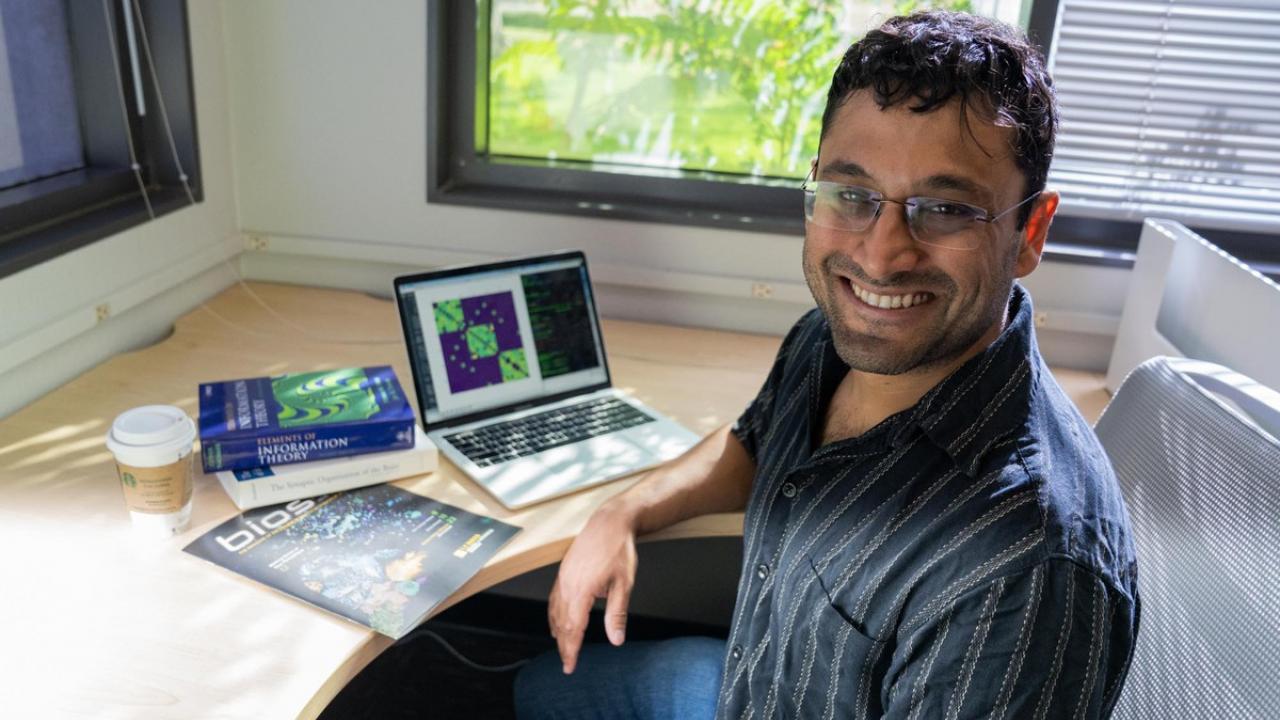
Perception Inception: Exploring How the Brain Makes Up the World with New Faculty Rishidev Chaudhuri
The world is made of matter, but between those particles are empty spaces, which paradoxically account for the majority of our perceived, concrete universe.
“This table feels hard,” said Assistant Professor Rishidev Chaudhuri, who sat in his office at the UC Davis Center for Neuroscience. “That’s something that emerges at the collective population level.”
How individual particles come together to spontaneously create new structures is a question pondered by many physicists. The concept underlying that question—collective behavior—also intrigues neuroscientists.
Your brain is a collection of neurons. In isolation, a single neuron is practically useless, but when working in tandem with innumerable other neurons, the network quite literally creates the world, transforming the photons your eyes perceive into a seamless visual experience.
“How does the brain create the world from all of those pieces?” wondered Chaudhuri, who holds joint appointments in the Department of Neurobiology, Physiology and Behavior and the Department of Mathematics.
Chaudhuri studies processing strategies in the brain using principles from mathematics and physics. His research spans the field of neuroscience, from exploring theoretical principles of neural computation to analyzing large neural datasets, and other topics outside and in between.
